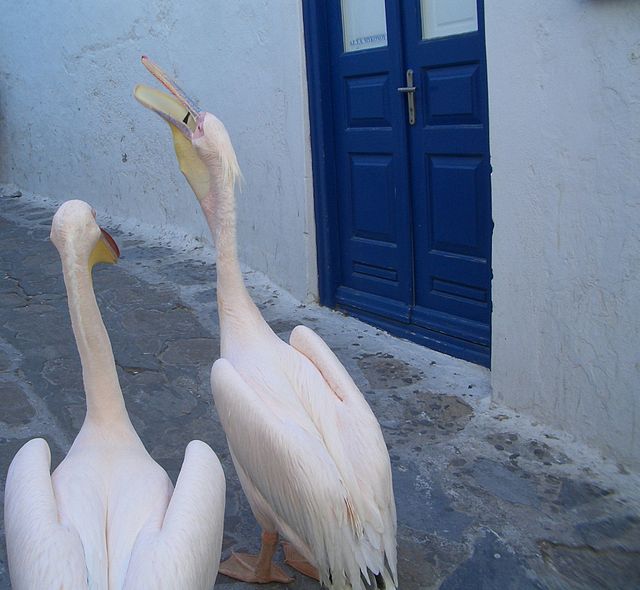Swallowing, also called deglutition or inglutition in scientific contexts, is the process in the body of a human or other animal that allows for a substance to pass from the mouth, to the pharynx, and into the esophagus, while shutting the epiglottis. Swallowing is an important part of eating and drinking. If the process fails and the material goes through the trachea, then choking or pulmonary aspiration can occur. In the human body the automatic temporary closing of the epiglottis is controlled by the swallowing reflex.
A pelican swallowing a fish
Eating is the ingestion of food. In biology, this is typically done to provide a heterotrophic organism with energy and nutrients and to allow for growth. Animals and other heterotrophs must eat in order to survive — carnivores eat other animals, herbivores eat plants, omnivores consume a mixture of both plant and animal matter, and detritivores eat detritus. Fungi digest organic matter outside their bodies as opposed to animals that digest their food inside their bodies.
Amandines de Provence, poster by Leonetto Cappiello, 1900, which shows a woman eating almond cookies
Women eating biscuits in England
A girl eating a piece of cake
Eating with fork at a restaurant





